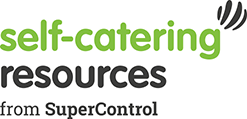According to the Papworth Trust1 an estimated 1.9 million households in the United Kingdom require some adaptations to improve accessibility. Between 2009 and 2013 this number increased by 12.4%. Accessibility is a key issue in the lives of many people with disabilities, and this is not limited to their home life. Going on holiday comes with a variety of challenges that self-caterers can help resolve for their differently-abled guests.
In 2015 accessible tourism contributed £3.2 billion (16%) towards the total spend on overnight trips in the UK2. Coupled with the fact that people with impairments and disabilities on average stay longer and spend more3 , making a few (relatively easily) changes is a smart investment for self-caterers.
What can you do?
Almost half a million British adults with an impairment stated lack of accessibility provision as a reason for not going on holiday in the UK2. The most common adaptations listed below4 are relatively easy to implement and can make a lasting difference to your guests’ holiday experience:
- Grab rails inside the home.
- Bath/shower seats.
- An acceptable bath/shower.
- Specially adapted toilet seats.
But there’s so much more you could do. Wheelchair users require more space to manoeuvre, if you provide parking for your guests can you allocate a reserved parking bay? The grading criteria for the National Accessible Scheme includes a range of mobility, hearing and visual measures ranging from simple recommendations like providing armed dining chairs, a cordless kettle and choosing lever door handles and taps when you next replace them, through to installing two heights of clothes rails, turning circles in the bedroom and bathroom and adding ramps5.
Top tip: You can add any bookable disabled facilities (hoist, bed rail, mobile shower chair etc.) as a Booking option for your property in SuperControl; it’s also helpful to include eg disabled parking or ground floor access if you have it as a search variable.
Takeaway advice
Currently 17% of SuperControllers have at least one accessible property in their holiday rental portfolio, representing just 5% of properties. David and Felicity Brown are the owners of Hoe Grange Holidays, award-winning self-catering holidays in the Derbyshire Peak District. They’ve been a part of the SuperControl community since 2010 and it’s been fantastic to see them receive recognition for their commitment to providing high quality wheelchair accessible holidays with outstanding disabled facilities and a wide range of specialist equipment during this time.
David says,
“Offering accessible accommodation is nothing to be fearful of, many of the adaptations can be unobtrusive and low cost. A bit of careful thought and design can make the world of difference. Space is the most important thing. The market is huge and the customers are loyal. Remember it’s not all about wheelchairs!”
Inclusivity is pivotal in society, adjusting your holiday rental to suit all types of people is one way you can comprehensively meet your guest’s needs.
1 Source: The Papworth Trust
2 Source: GB Tourism Survey 2015
3 Average length of stay is 3.3 nights and average spend £210 (compared to an overall average of 2.9 nights and £191 spend). Source: GB Tourism Survey 2015
4 Source: DLF.org.uk
5 Source: National Accessible Scheme




